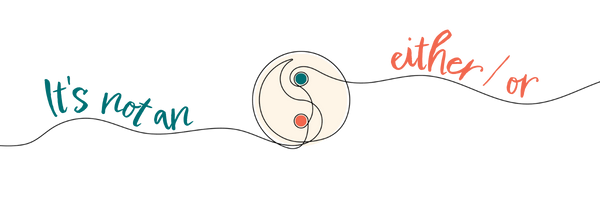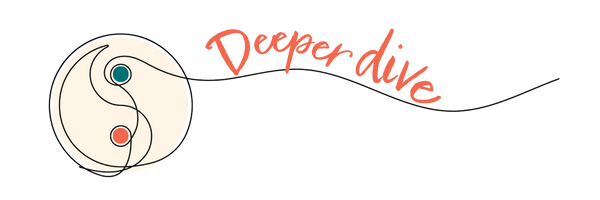Its Not About Making the Right Decision
Are you facing a challenging decision? This month’s newsletter is for you.
Are you facing a challenging decision? This month’s newsletter is for you.
When I was in graduate school, I went gambling with my professor.
Well… that’s not quite true—the story is a bit more complex.
In grad school, I worked with Ellen Langer. Her groundbreaking work on mindfulness offers creative ways to think about our thinking and decision-making without requiring us to sit on a meditation cushion. Instead, she invites us to constantly question our thoughts.
You might be familiar with some of Ellen's most famous studies. In her nursing home study, she showed that aging residents had better health and well-being outcomes when they were given responsibility—like caring for a plant—rather than when responsibility was taken away. Yet she also revealed how we tend to overestimate our control. Her gambling studies demonstrated that people feel more confident and bet more on random events, such as a lottery, when they can pick their own numbers, compared to when they have no involvement.
In grad school, Ellen wanted to test another gambling hypothesis. Four of us took a field trip to Foxwoods Casino—Ellen, my husband, another grad student, and me. The other grad student and I got to work testing the hypothesis, while Ellen and my husband went off to play poker. The hypothesis never panned out, and the paper never got written. I believe my husband took Ellen’s money in poker. Luckily, she continued working with me despite that!
Ellen’s work offered novel ways to see the world, and one key insight has stuck with me for years: “It’s not about making the right decision, it’s about making a decision right.”
When I worried about big life choices during grad school, Ellen reminded me that life is dynamic and constantly changing. We have the chance to keep making choices, evaluating our circumstances, and figuring out how to navigate what’s in front of us. This advice has helped me—and countless others—make more creative decisions in life, careers, and leadership.
I recently had the chance to catch up with Ellen and explore what’s on her mind these days. Check it out here.
As we head into the holidays and the new year, I hope you find a bit of space to feel more mindful.
"Its not about making the right decision, its about making the decision right." — Ellen Langer
Wendy and Ellen’s Chat
Wendy: Ellen, My work on both and thinking has been tremendously influenced by your work on mindfulness? What are you working on today and how do Do you think these two ideas connect?
Ellen Langer: Most people are sealed in unlived lives because they’re mindless. When you’re mindless, you’re like a robot—programmed by culture or by yourself. You don’t see alternatives, and you have no choices. Mindfulness changes that. It creates choice, and choice allows for possibilities.
Wendy: Can you share an example of how mindfulness helps us see those possibilities?
Ellen: Sure. Years ago, I came home to find my house had burned down. My neighbors were there, so I didn’t face it alone. The insurance agent said it was the worst damage he’d seen in 25 years. But being upset wouldn’t bring back what was lost, so I didn’t throw my sanity in with the fire.
Then something remarkable happened. I moved into a hotel, and on Christmas Eve, I returned to my room to find it full of gifts—not from management, but from the waiters, chambermaids, and parking attendants. Every Christmas, I think of those gifts, and my faith in people is restored. I don’t even remember what I lost in the fire.
Wendy: That story speaks to your idea that outcomes aren’t inherently good or bad.
Ellen: Exactly. Outcomes are what you make of them. If you stop seeing the world in absolutes and accept uncertainty, you open yourself up to choice—and choice creates freedom.
Wendy: You’ve said before that decision-making is often misunderstood. Can you explain?
Ellen: Most people waste time trying to make the right decision. But once you take action, you can never know what the alternative might have led to. So rather than obsessing over the right decision, make the decision right.
Wendy: How do you describe mindfulness, and how is it different from meditation?
Ellen: Meditation is a practice that can lead to mindfulness, but mindfulness itself is a way of being. It starts with actively noticing new things. When you recognize that everything is changing, and everything looks different from different perspectives, you naturally become mindful.
Wendy: That’s where it connects to “both/and” thinking—letting go of rigid either/or choices.
Ellen: Yes! People talk about “thinking outside the box,” but there is no box. You just notice alternatives and appreciate possibilities. When you operate mindfully, you let go of assumptions and stay open.
Wendy: You’ve said mindfulness could help solve many of the world’s problems. How?
Ellen: Most bad behavior comes from mindlessness—when people don’t feel good about themselves, or when they fear outcomes. But behavior makes sense from the actor’s perspective, or else they wouldn’t do it. If we understood that, we’d treat each other with more compassion.
Wendy: So mindfulness can help us embrace uncertainty, find choice, and connect more deeply.
Ellen: Exactly. If we flipped the default from mindlessness to mindfulness, life would be easier. It’s the essence of being happy, effective, and stress-free.
Looking to deepen your understanding? Here some more reading for the holidays.
Ellen Langer: Known as the "mother of mindfulness," Ellen’s books Mindfulness and The Mindful Body offer accessible insights into how active noticing can enrich every aspect of life. Her work challenges the misconception that mindfulness is solely about meditation, showing instead how it’s a way of being that transforms our understanding of uncertainty.
Pema Chodron: Pema Chodron, an American Tibetan Buddhist monk, she offers us a different path to dealing with life challenges through compassion kindness and mindfulness In Getting Unstuck, she explores how we can break free from harmful habits and patterns by facing discomfort and uncertainty with curiosity rather than avoidance. She introduces the Buddhist concept of shenpa—the "hook" that triggers emotional reactivity—and teaches us to pause, recognize these hooks, and develop a new relationship with difficult emotions.











Ellen Langer is a favorite author, and this was just what I needed to read today. Thank you, Wendy.
I recently watched the Rich roll podcast interview with Dr Langer and her mindfulness is palpable and contagious. More so than even reading her words, seeing her embody mindfulness is very instructive